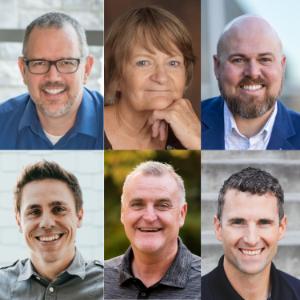Healing Professionals Panel Discussion:
Exploring and Avoiding Common Mistakes When Helping People Address Sexual Brokenness
This panel brings together a counselor, pastor, coach, and lay leader to address critical issues surrounding sexuality and forgiveness within Christianity. Through case studies, scriptural exploration, and open dialogue, the panel will identify common missteps in Christian counseling and ministry while offering redemptive, biblically grounded strategies for correction. Participants will benefit from diverse perspectives, group discussions, and the wisdom of practical experience. The goal is not only to foster robust conversations but to provide actionable insights to guide counseling, coaching, and ministry efforts.
Examples of Common Mistakes
- Unbiblical Views of Sex:
- Example: A Christian couple struggles with intimacy because they believe sex is inherently “dirty” or unspiritual, a belief shaped by cultural or familial taboos rather than Scripture.
- Correction: Teaching the biblical view of sex as a gift from God designed for intimacy and unity within marriage (Genesis 2:24-25; 1 Corinthians 7:3-5).
- Cheap View of Forgiveness:
- Example: A church member advises a woman who has been deeply wronged to “just forgive and forget,” dismissing the process of repentance and reconciliation.
- Correction: Clarifying biblical forgiveness as a call to extend grace (Colossians 3:13) while acknowledging the importance of repentance and accountability (Luke 17:3-4).
- Over-Spiritualizing Sexual Struggles:
- Example: A coach tells a man struggling with pornography that all he needs to do is pray harder, neglecting to address practical accountability or underlying emotional wounds.
- Correction: Providing a holistic approach, incorporating spiritual practices (Psalm 119:11) alongside counseling strategies and support systems (Proverbs 11:14).
Learning Objectives
For Counselors
- Participants will learn to identify and address theological misunderstandings (e.g., “sex is sinful,” “forgiveness requires no repentance”) that impact client growth.
- Participants will explore ways to balance biblically grounded teaching with evidence-based therapeutic approaches.
- Participants will learn to equip clients with resources and relationships that support spiritual and emotional health in sexual struggles.
For Coaches
- Participants will learn how to balance coaching for personal growth with spiritual truths about human sexuality and repentance.
- Participants will understand how sexual issues affect broader relational health and equip individuals to engage in healthy dialogue.
- Participants will be able to encourage clients toward practical steps and spiritual growth, anchored in passages like Galatians 5:16-17.
For Lay Leaders
- Participants will be able to cultivate small groups or mentoring relationships that help individuals pursue purity and restoration (James 5:16).
- Participants will be trained to address sexual issues with compassion, clarity, and scriptural support.
- Participants will recognize when to refer individuals to professional counseling or pastoral care.

Panelists
Troy Snyder, MS, NCC, LPC, CCSAS, CPCS, Executive Director, Christian Sex Addiction Specialists International (C-SASI)
Donna Dixon, A Door of Hope Peer Facilitator Training Community Founder/Lead Servant
Jake Porter, Founder and President, Daring Ventures Counseling, Coaching, and Consultation
Matthew Raabsmith, Mdiv, PCC, CPC-C, Certified Professional Coach, speaker, and author.
Rodney Wright, Advancement Specialist, Pure Desire Ministries
Nick Stumbo, Executive Director, Pure Desire Ministries

